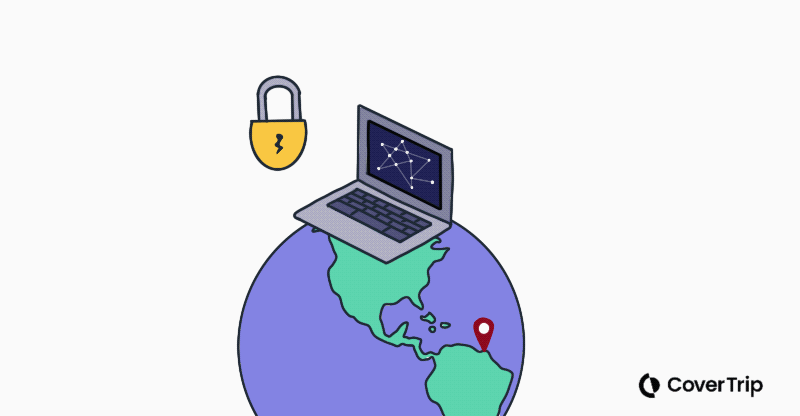What every traveler needs to know about VPNs
21 January 2023
Travel is back to 2019 (pre-pandemic) levels and rising quickly. By all reports, this year is expected to be a huge year for international travel, with consumer confidence at its highest level in years.
So, why worry?
Well, if you’re seeing this news you can bet the cheats, scammers, and thieves are too. And they’ve had two years to hone their not-insignificant hacking skills to steal your private data.
A VPN, or virtual private network, is an application that runs on your electronic devices (your phone, computer, tablet). It encrypts your data and conceals your location, making it harder for hackers to steal passwords, credit card numbers, and other private and valuable data.
A VPN also allows you to bypass geo-blocking, which some countries implement to limit or restrict access to internet content (for various reasons).
Here’s what you need to know about protecting your data with a VPN when traveling.

The benefits of a VPN
The most common benefit of using a VPN when traveling is so that you can access streaming services wherever you go. Depending on where you travel, the country you visit may block services or content you would normally have access to at home.
The second most common benefit of using a VPN is to encrypt your data. For example, using a VPN will protect your account information if you’re logging into your bank accounts or using your credit card to make online purchases.
How a VPN works
Not to get into the techie weeds too much, a VPN changes how your devices access the internet.
Typically access starts with your device connecting to an internet service provider. With a VPN installed, your device’s access to the internet starts with the VPN, which creates a secure ‘tunnel’ to the internet. Everything you do on your device goes through that secure tunnel and is hidden.
Having a VPN installed means all your internet traffic, including email, streaming music and videos, and even voice calls, are protected.
Where to get a travel VPN
It’s an app you can buy and a service you pay for. VPN services are very popular, so you have many options, but not all VPNs work alike. Here’s what to look for:
- Make sure all the devices you’re traveling with are supported
- Look for a service that lets you connect multiple devices, so you don’t have to disconnect one to connect the other (annoying)
- Check which countries the VPN works for – not all VPN work everywhere
- Choose a VPN with an auto-connect
Here’s an article from ZDnet ranking the best VPNs for travel.
Note: Using a VPN will usually slow down your connection speeds, so you want to ensure that your service has acceptable speeds.
Check the local laws
VPNs are banned in some countries precisely because some governments want to spy on all internet traffic, and the punishment can be severe.
Currently, the list of countries where VPNs are illegal are:
- Belarus
- China
- Iran
- Iraq
- North Korea
- Oman
- Russia
- Turkey
- Turkmenistan
- United Arab Emirates
Related topics
Damian Tysdal is the founder of CoverTrip, and is a licensed agent for travel insurance (MA 1883287). He believes travel insurance should be easier to understand, and started the first travel insurance blog in 2006.
